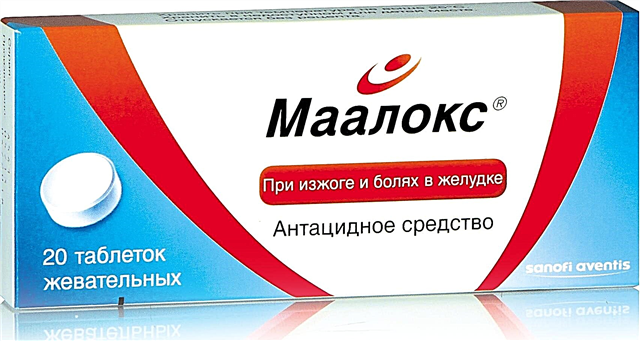
For a child to develop normally, he needs to receive different nutrients every day. Among them there are vitamins important for growth, valuable minerals, essential fats, carbohydrates necessary for recharging energy and other compounds. L-carnitine is equally important.

What is it?
L-carnitine, also called levocarnitine or l-carnitine, is a substance similar to the B vitamins. It is found in the liver as well as in muscle tissue and is responsible for various metabolic processes in the body:
- transport of fatty acids and their subsequent oxidation with the release of energy;
- optimization of protein metabolism;
- improved liver function;
- digestive enzyme activity;
- accumulation of glycogen and its more economical consumption;
- improved absorption of vitamins;
- decrease in the amount of fat mass;
- activation of the production of endorphins;
- increased activity of immune cells;
- improvement of the state of the myocardium and blood vessels, as well as the tissues of the central nervous system;
- more active removal of toxins and organic acids;
- restoration of metabolism with increased thyroid function.

Sources and needs
Levocarnitine is found mainly in protein foods. We can get it from meat and poultry, fish dishes, cheese, milk and cottage cheese. It is important to note that a child's body needs a regular intake of l-carnitine much more than an adult. Such a substance is required both for newborns for proper development, and for preschoolers who are actively growing, and for schoolchildren who have significant emotional and mental stress.
At the same time, the adult's body is able to synthesize a certain amount of carnitine on its own, so this substance is not considered irreplaceable. However, in babies, the biosynthesis of this compound is poor. The endogenous formation of L-carnitine begins in full in adolescents over 15 years old, therefore in children's nutrition protein products must be present in sufficient quantities.
It is also known that they play a role in the synthesis of carnitine ascorbic acid, iron, some enzymes, vitamins B6 and B3, folic acid and some amino acids (methionine, lysine). And therefore, with a shortage of any of these substances, the formation of l-carnitine will be disrupted, which will lead to its deficiency.

The requirements for l-carnitine per day in milligrams for children of different ages are as follows:
- up to a year - 10-15 mg;
- at 1-3 years old - 30-50 mg;
- at 4-6 years old - 60-90 mg;
- from 7 years of age - 100-300 mg.
Higher dosages of such a compound are needed:
- children playing sports;
- babies who were born earlier than expected or suffered a birth injury;
- schoolchildren who are intensively preparing for tests and exams;
- children who have undergone any disease, surgery or injury;
- infants who have reduced muscle tone or insufficient weight gain;
- patients with hyperthyroidism, heart or brain pathologies.


What is the threat and how does the deficit arise?
With a lack of L-carnitine, a child has the following health problems:
- the body's defenses weaken;
- physical and mental development slows down;
- appetite is disturbed;
- there are malfunctions in the work of important internal organs;
- there is rapid fatigue and muscle weakness;
- schoolchildren's performance deteriorates.
As a result of a deficiency of such a substance, children begin to get sick more often, become irritable, drowsy, lag behind in development, cope with everyday tasks worse, complain of weakness, and gain weight poorly.

In this case, carnitine deficiency is primary if the formation of such a compound is initially disturbed in the body. This rare pathology, caused by genetics, is observed in one child in 50-100 thousand. Most often, the deficiency develops a second time due to:
- too little carnitine in food;
- deterioration of biosynthesis at an early age, especially with prematurity and in children with hypotrophy;
- problems with absorption in the digestive tract, for example, if the baby has cystic fibrosis or celiac disease;
- increased loss through the tubules of the kidneys with their pathologies;
- accelerated elimination after binding with organic acids;
- increased needs associated with heart disease and other conditions;
- mitochondrial diseases.
A small amount of carnitine in the diet is due to diet therapy or improper feeding. A newborn gets enough of this amino acid from mother's milk, and its bioavailability is higher than from any animal food.

It also exists in adapted milk formulas, but soy-based formulas practically do not contain such a compound, therefore, if it is necessary to feed this type of nutrition, babies will receive less of it.
Additives and pharmaceuticals
To eliminate the lack of L-carnitine or prevent the deficiency of such a substance, various food additives (dietary supplements) and drugs can be used. One of the most popular is "Elkar"... Especially for small patients, it is released in the form of a colorless solution, which is given to babies to drink from birth. If you need help with serious illnesses, prescribe "Elkar" injections. In addition, there is a form of effervescent granules, but it is not used in childhood.
One milliliter of "Elkar", which is taken orally, contains 300 mg of levocarnitine, one ampoule - 500 mg of such a substance. The only contraindication for this drug is hypersensitivity, and possible side effects in the form of allergies or dyspepsia are very rare (according to reviews). The solution is offered to babies 30 minutes before meals, diluted with some sweet drink or water.

At the age of 3 years, it is used only by prescription of a doctor, who determines a single dose of Elkar in drops for a particular baby.
According to the instructions for use, for children over 3 years old, the solution is prescribed in a course of 1 month and given 2-3 times during the day. The daily dosage is also determined individually, because for patients 6 or 12 years old, a different number of drops are needed.
Instead of Elkar, other drugs can be used in which l-carnitine is the main ingredient - "Karniten", "Karnifit", "Levokarnil". In addition, supplements from vitamin and sports nutrition manufacturers, such as companies "Solgar" or "Now Foods". They are presented in tablets, capsules, solutions with a sweet taste and other options.
When choosing such a drug for a child, it is advisable to consult a doctor.
The doctor will talk about the need to use L-carnitine in the next video.



